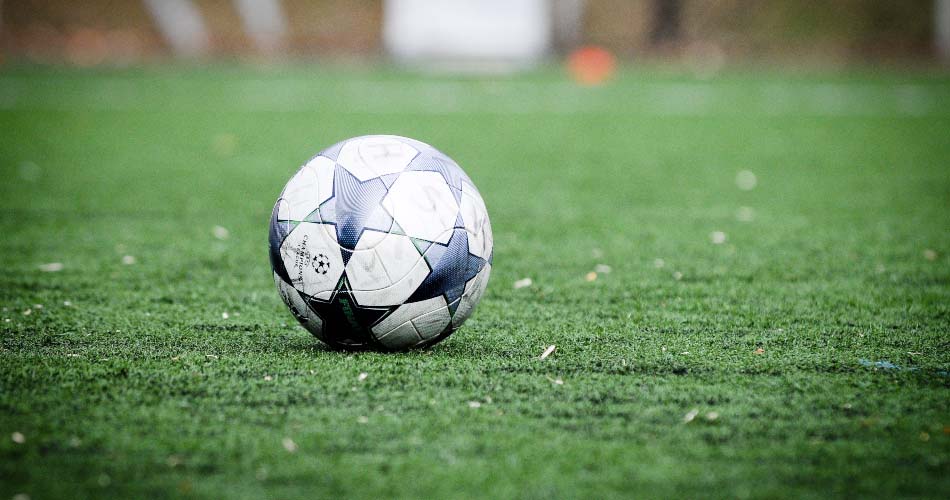Number Of Betting Ads Shown During Euros Halved Compared To World Cup

The number of betting ads shown on TV during the European Championships has halved when compared to the last World Cup in 2018.
Data released by ITV has revealed that a total of 85 betting advertisements aired on ITV and ITV4 during its coverage of the Euro 2020 group stages, a 47% drop when compared to the 161 betting adverts shown during the same stage of the World Cup in 2018. ITV’s data, the current number of ads work out to 3.7 ads per live match at this year’s tournament, compared to 6.9 in 2018.
The Betting and Gaming Council attributes the reduction of betting advertisements to the whistle-to-whistle ban introduced by BGC members back in 2019, where betting adverts cannot be shown from five minutes before a match starts to five minutes after it ends.
In a statement, Michael Dugher, the Chief Executive of the BGC, said: “These figures are testament to the success of the whistle-to-whistle ban and the continued drive for higher standards introduced by the regulated industry since 2019.
“At the start of the tournament, we had the same siren voices from the usual suspects in the anti-gaming lobby making dire warnings about people being ‘bombarded’ with betting ads and calling for a ban. I’m pleased that calls from prohibitionists to ban TV betting ads are baseless and not backed up by the evidence, with the government themselves also acknowledging that independent research ‘did not establish a casual link between exposure to advertising and the development of problem gambling’.”
He added: “Nevertheless, the significant reduction in the number of betting commercials during the Euros, when compared to the last World Cup, is further proof of the commitment by our members to raising standards – while also promoting safer gambling, unlike the safe, unregulated black market that employs no one, pays no tax, and makes no contribution to the economy or many of our much-loved sports.”
The news comes after the BGC called for the creation of a gambling ombudsman and after the standards body welcomed the UK government’s decision to lift all Covid-19 restrictions in England, which means casinos and betting shops will no longer need to adhere to social distancing requirements and the wearing of facemasks.
It also comes after a study conducted by Caytoo found that the number of gambling sports sponsorships have fallen since 2019. Although the gambling industry was the primary sponsor of sports in 2019, it has now been overtaken by sponsorships for construction and engineering, automotive, and financial services.
Playtech Partners With Kindbridge For Gambling Research
Also this week, game developer Playtech has announced a research partnership with Kindbridge, the world’s first virtual mental health clinic for gamblers and gamers.
According to a news article by Playtech, the research partnership will result in the creation of an evidence-based model for gambling treatment in a telehealth setting at the newly-established Kindbridge Research Institute in the United States.
Playtech states that the purpose of the partnership is to use advancements in technology to improve the understanding and treatment of gambling and digital dependency related harms, with an aim to enhance treatment efficacy in a virtual setting. The research will also focus on the mental health of gamblers, games and anyone suffering from digital dependency and will identify areas to support them.
The Kindbridge Research Institute has commissioned the Center for Gambling Studies at Rutgers University in New Jersey to set up an evidence-based telehealth model that will be used to analyse the effectiveness of digital gambling-related harm support and treatments. The data will then be used for peer-reviewed research and provide data sets on a size and scale never achieved.
Meanwhile, Kindbridge has been working with casino operators based in the United States as well as insurance companies and social impact organisations to create access to care pathways through telehealth to eliminate barriers for gamblers and gamers. With their help, Kindbridge will be able to examine player data alongside the data gathered from Kindbridge’s clinical network to gather a better understanding of the origins of harmful gambling.
According to Playtech, the analysis of data will be used to define personalised intelligent approaches to a treatment designed to have the greatest impact for those seeking help, and the insight will be published within the next 18 to 24 months.
Mor Weizer, the CEO of Playtech, said in a statement: “The research partnership with Kindbridge and Rutgers University will play a critical role in helping the sector design and deliver high-quality digital wellbeing and mental health support for those at-risk and affected by gambling-related harm. We are delighted to partner with Kindbridge Research Institute and Kindbridge clinical network as they pioneer the next generation of gambling treatment, services and support in the US.”
Daniel Umfleet, the CEO of Kindbridge, added: “Combining data from players and Kindbridge’s clinical network will result in meaningful insight that has never before been achieved. The scale of the data sets mean we can gain [an] in-depth understanding into those who are currently suffering from harmful gambling behaviours, as well as members of their support network who may also be affected. This research will allow data scientists, academics and researchers to gain more insight on effective support and treatment in a digital environment than ever before.”
Lia Nower, Professor and Director of the Center for Gambling Studies at Rutgers University and the lead researcher on the study, commented: “We are excited to partner with Kindbridge to build a standardised and effective treatment framework for problem gambling and video gaming. Kindbridge is the first treatment agency in the US that is exclusively focused in these areas, and delivering treatment we can test for effectiveness fills an unmet need in this time of rapid expansion.”